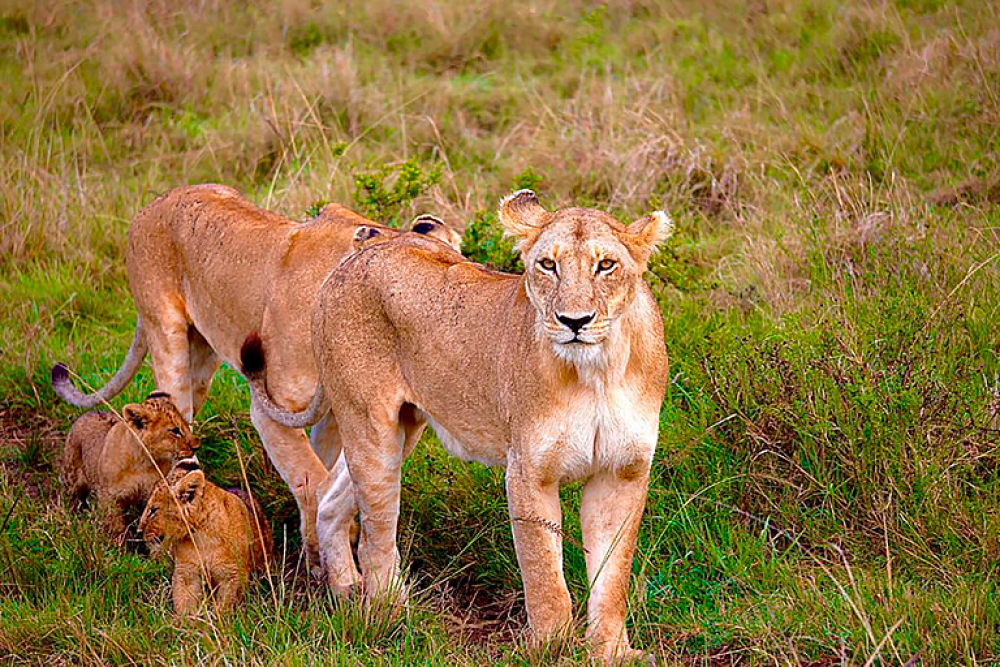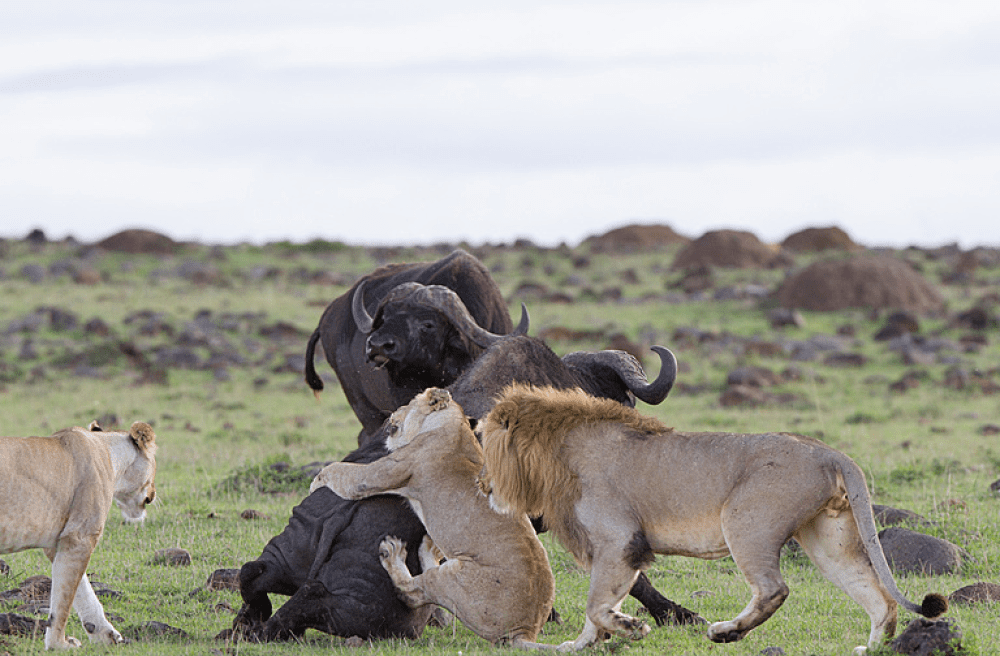As one of Britain’s foremost documentary filmmakers, director Pamela Gordon has been working in factual broadcasting for over 30 years. From history to human conflict and even taking TV chef Gordon Ramsey behind bars, her portfolio is rich and varied and most recently includes a feature-length film about lions.
Lion: The Rise and Fall of the Marsh Pride, created in collaboration with the BBC Science and Natural History Unit, tells the story of the most-filmed pride of lions on Earth living in the Maasai Mara. Exploring the plight of these animals whose future isn’t guaranteed, the film also looks at the human conflicts that have threatened them and the conservation advocates fighting to keep them alive.
We spoke to Gordon to find out more about the very serious issues that underlie the documentary, but also to learn more about what makes this kind of filmmaking so fulfilling for those involved.
How did you come to work on Lion: The Rise And Fall Of The Marsh Pride?
This film takes a natural history subject, told through the amazing archive that the BBC has of the Marsh Pride, but uses a documentary approach. I have worked as a documentary director for 25 years and have made many films about people’s life stories and situations, but I am passionate about conservation. When the opportunity came up to direct this film, I jumped at it. I have experience of working with archive in history films, like the Thatcher and Blair series for the BBC which I made recently, but finding the lions’ stories in hundreds of hours of footage was a new challenge. Traveling to Kenya for the interviews and present-day filming, I was able to use my documentary-making experience to capture the current situation regarding human-animal conflict as well as the relationship between people and the lions both past and present.

“The use of certain pesticides and other chemicals can have a devastating effect on lions and other wildlife…” Image credit: BBC Studios/Pamela Gordon
Insecticides aren’t often mentioned when discussing the threats that face lions, how can these chemicals negatively impact them?
The use of certain pesticides and other chemicals can have a devastating effect on lions and other wildlife, especially birds. If birds or other creatures eat crops or plants which have been sprayed with dangerous chemicals, their populations can be decimated.
These pesticides become a threat to predators like lions when they are used to directly target the animals. A tiny amount of some pesticides is hidden in dead livestock carcasses and left out for them to feed on in order to kill them. Even a tiny amount of a strong pesticide can wipe out several lions, and in turn, hundreds of vultures who feed on the poisoned lions. These deaths often go unreported or even undiscovered because the evidence has disappeared in this way.
These harmful pesticides are also extremely dangerous for humans when used wrongly. There are examples of water sources being poisoned and even accidental deaths of children.
What ecological role does the Marsh Pride of the Maasai Mara hold, and why is it so important that we protect them?
The Maasai Mara sits in the Serengeti Mara ecosystem, and it is crucial to maintain the balance between species for the health and biodiversity of the whole area. Lions like the Marsh Pride are apex predators. This means they stand at the top of the food chain with no animals which truly threaten them. Their role within the ecosystem is important. By hunting and eating smaller prey, the plains game, they control the numbers of those animals like wildebeest, topi, warthogs, zebra, and even buffalo. Without lions and other predators, the herds of game would become too big and out of control. The lions keep the numbers of game in check which in turn contributes to the maintenance of the grasslands and water sources, preserving river banks and ensuring the landscape can sustain all the creatures who live there or move through seasonally.

Life hasn’t been easy for the Marsh Pride. Image credit: BBC / Simon Blakeney
What do you enjoy most about working on natural history documentaries such as this one?
This film not only documents the history of these incredible wild creatures but also the increasing and urgent issue of human-animal conflict. I had the opportunity to learn so much more about lions. I also learned about the space they need to roam in as wild predators, and just how important it is to protect these large areas they need to survive.
By listening to those who live up close and personal with the lions, and filming some of the great efforts that are being made to help local communities live alongside the pride, we were able to highlight not only the problems but hopefully some of the desire for solutions.
Being lucky enough to make this film I’d love to think that it can add to the education and much-needed discussion around human-lion conflict, and how we as a world can help to save these incredible creatures.
What advice would you give to someone else interested in the natural world hoping to get involved in such projects?
My advice for anyone wanting to make films about the natural world is to stay true to your passion. There are many ways to help and support organizations and charities who are battling to protect wildlife and habitats for the world.
The important thing for anyone committed to the natural world is to support these agencies and to spread the message to others who might help. By remaining passionate and always looking for ways to learn and experience the world, an opportunity may come up to contribute to a film project whether it be for broadcast or not. The more you can offer in terms of knowledge and commitment to the issues the better.
Lion: The Rise And Fall Of The Marsh Pride airs at 9pm on Tuesday 23rd August on BBC Two and iPlayer.
Source Link: IFLScience Meets: Director Pamela Gordon On "Lion: The Rise And Fall Of The Marsh Pride"